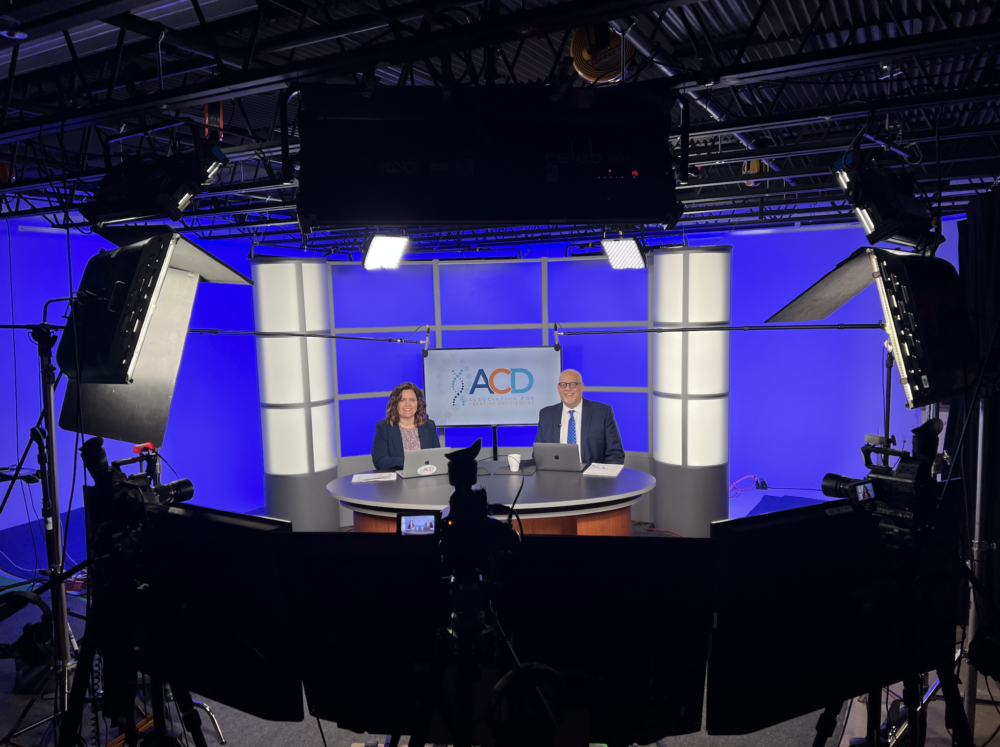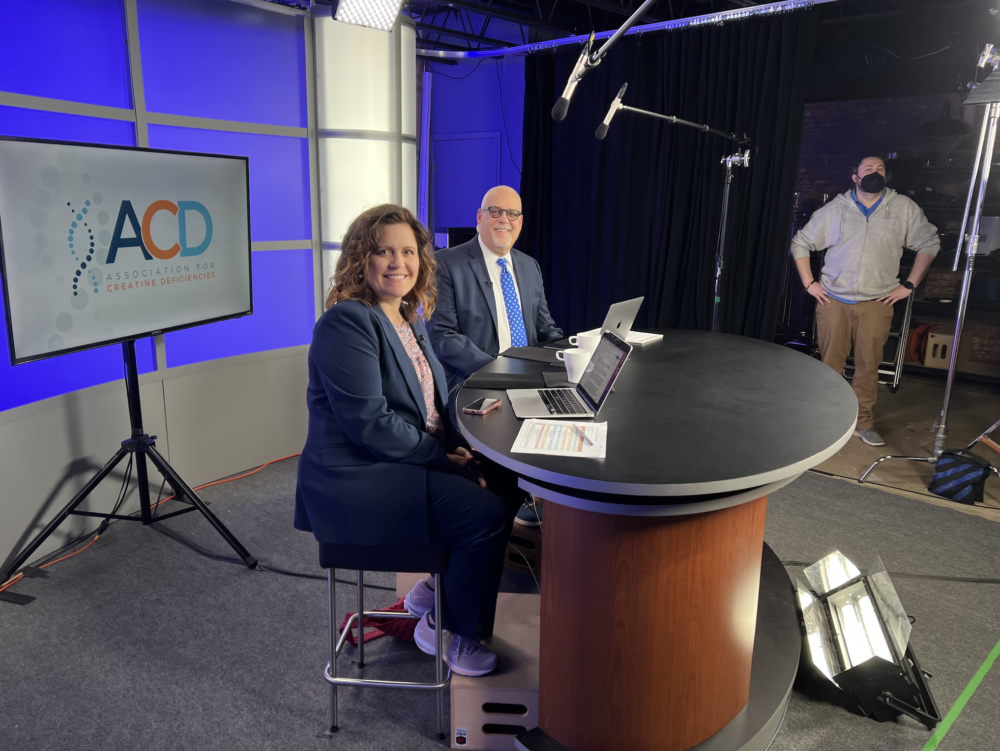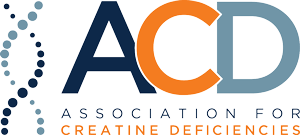
Reflections on the CCDS EL-PFDD
By Celeste Graham, ACD Director of Education
I had always thought of the Food and Drug Administration (FDA) as a very high-level governmental agency that oversees all things safety and effectiveness, related to food, beverages, supplements, and medications… so high-level and inaccessible that they really didn’t have any interactions with the general public.
Soon after I joined the Association for Creatine Deficiencies (ACD) as a board member and Director of Education, the organization decided to pursue applying for an FDA Listening Session. In anticipation of future clinical trials and possible treatments, we wanted to share the experience of Cerebral Creatine Deficiency Syndromes (CCDS) with the FDA. The Listening Session would be an hour and a half at most and would include patients, caregivers, researchers, and doctors. The goal would be to effectively communicate our experiences with CCDS, as well as what would be important to our loved ones when potential treatments were being developed. So, we planned and developed a robust application and accompanying agenda. I was so excited when we finally submitted the application in March 2021. However, we found out a few months later that our request had been denied, which was frustrating and disappointing.
Fast forward a few more months and we received an email from the FDA reaching out to let us know that they had reconsidered our request and wanted to have a CCDS Listening Session.
This was a pivotal point for our organization. The board began to learn about and analyze the differences between an FDA Listening Session and an Externally-Led Patient Focused Drug Development Meeting (EL-PFDD). After quite a bit of research, the board decided to pursue an EL-PFDD. This would be a huge undertaking, but well worth it in the end. Thus, the planning began for the CCDS EL-PFDD.
Almost a year in the making, it was held on Jan. 24, 2023. There were many different stakeholders (members of the community, medical professionals, researchers, pharma) and dozens of FDA staff in attendance. Our original goal was to recruit 70 people to attend. In the end, close to 300 people joined us! Throughout the five-hour meeting, our community of CCDS patients and caregivers were able to give a fully detailed picture of what it is like to live with L-Arginine: Glycine Amidinotransferase Deficiency (AGAT), Creatine Transporter Deficiency (CTD), and Guanidinoacetate Methyltransferase Deficiency (GAMT). The result was twofold: a recorded meeting as well as a lengthy Voice of the Patient report. Both of these will be available to anyone wanting information about CCDS. The Voice of the Patient report will include a transcript of the meeting, the comments submitted through our website, and additional data from our CreatineInfo Registry. The report will likely be one of the first things FDA reviewers reference when investigating proposed CCDS clinical trials or treatments in the future. It also serves as an excellent source of information for those considering starting a CCDS research project. Having a well planned and executed EL-PFDD recording and report available is just one of the many ways ACD is actively providing resources that support current and future research. This meeting was a once-in-a-lifetime. The FDA accepts requests for EL-PFDD meetings on specific disorders only once.
As much of an accomplishment as this is for our organization and the CCDS research community, it is also incredibly important for caregivers like me, Levi’s mom, who wants to see a CTD treatment made available. Together, we are getting the word out about CCDS- about what it is like to have a CCDS, to care for someone living with AGAT, CTD, or GAMT, and what outcomes are important in regards to any future treatments that are developed. Together, our participation informs researchers and industry that our community is committed to finding a cure and hopeful for clinical trials. Thank you to all the families that attended the meeting, shared their personal experiences and participated in any way.






